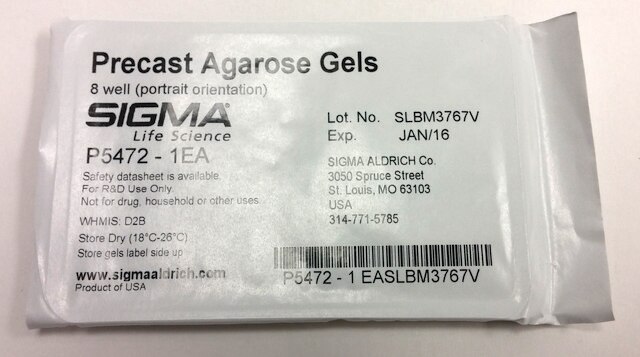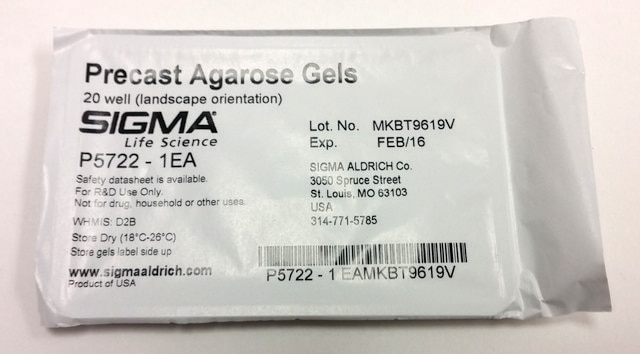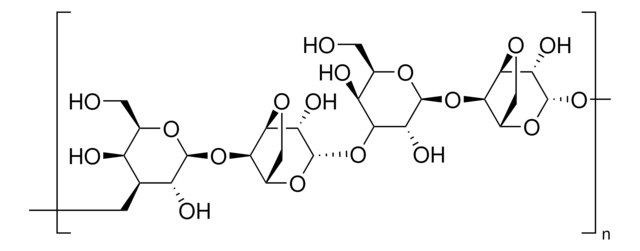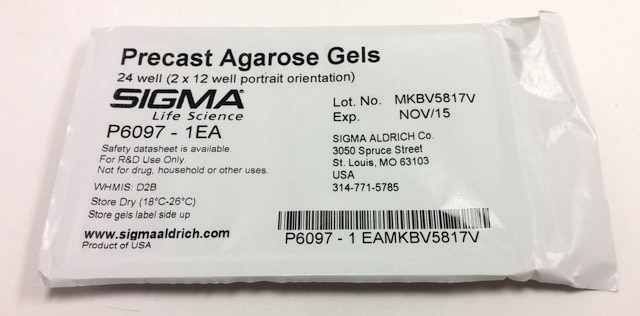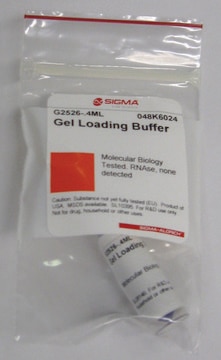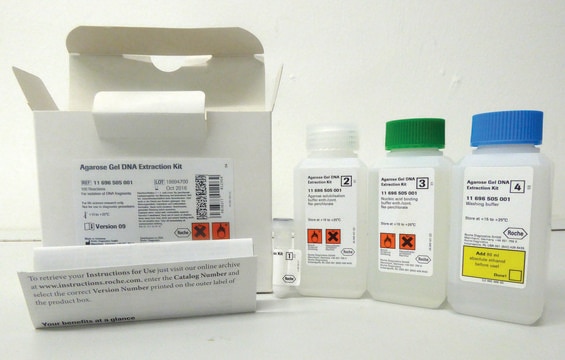P6222
Precast Agarose Gels
8-well (portrait orientation)
Synonym(s):
8-well Precast Agarose Gels, Precast agarose gels for nucleic acid separation
About This Item
Recommended Products
grade
for molecular biology
Quality Level
form
gel form
does not contain
ethidium bromide
concentration
1.25% agarose (in 1x MOPS buffer; for RNA electrophoresis)
storage temp.
room temp
Looking for similar products? Visit Product Comparison Guide
General description
Gel size: 6.0 × 9.5 cm, 5.5 mm thick
Cassette size: 6.8 × 10.2 cm container tray (fits common horizontal electrophoresis units)
Well orientation: 8-well, portrait style
Application
TBE - agarose gels are available in two common concentrations (1% and 4%) for DNA electrophoresis. Ethidium bromide (0.5 μg/ml) is included in the TBE-agarose gels for easy visualization. TBE-agarose gels are available in 8, 20 and 24 well formats. The separation range for the 1.0% gel is 500-1000 bp and 8-1000 bp for the 4% gel.
MOPS - agarose gels (1.25%) are available without denaturants (e.g. formaldehyde or glyoxal) for the analysis of total RNA, in vitro RNA transcripts, and Northern blotting. RNA electrophoresis usually does not interfere with staining. If significant secondary structure is suspected, the RNA should be denatured by a method listed in the product insert. The separation range for the 1.25% MOPS gel is 0.25-10 kb.
Packaging
Other Notes
RNA agarose gels contain 1× MOPS (20 mM MOPS, 5 mM sodium acetate, 1 mM EDTA and 1 mM EGTA, pH 7.0)
Quality
Physical form
Cassette size: 6.8 × 10.2 cm container tray; fits common horizontal electrophoresis units
Sample format: 8-well (portrait), 20-well (landscape), 24-well (2 × 12 well portrait)
related product
Storage Class
13 - Non Combustible Solids
wgk_germany
WGK 3
flash_point_f
Not applicable
flash_point_c
Not applicable
ppe
Eyeshields, Gloves, type N95 (US)
Certificates of Analysis (COA)
Search for Certificates of Analysis (COA) by entering the products Lot/Batch Number. Lot and Batch Numbers can be found on a product’s label following the words ‘Lot’ or ‘Batch’.
Already Own This Product?
Find documentation for the products that you have recently purchased in the Document Library.
Customers Also Viewed
Our team of scientists has experience in all areas of research including Life Science, Material Science, Chemical Synthesis, Chromatography, Analytical and many others.
Contact Technical Service